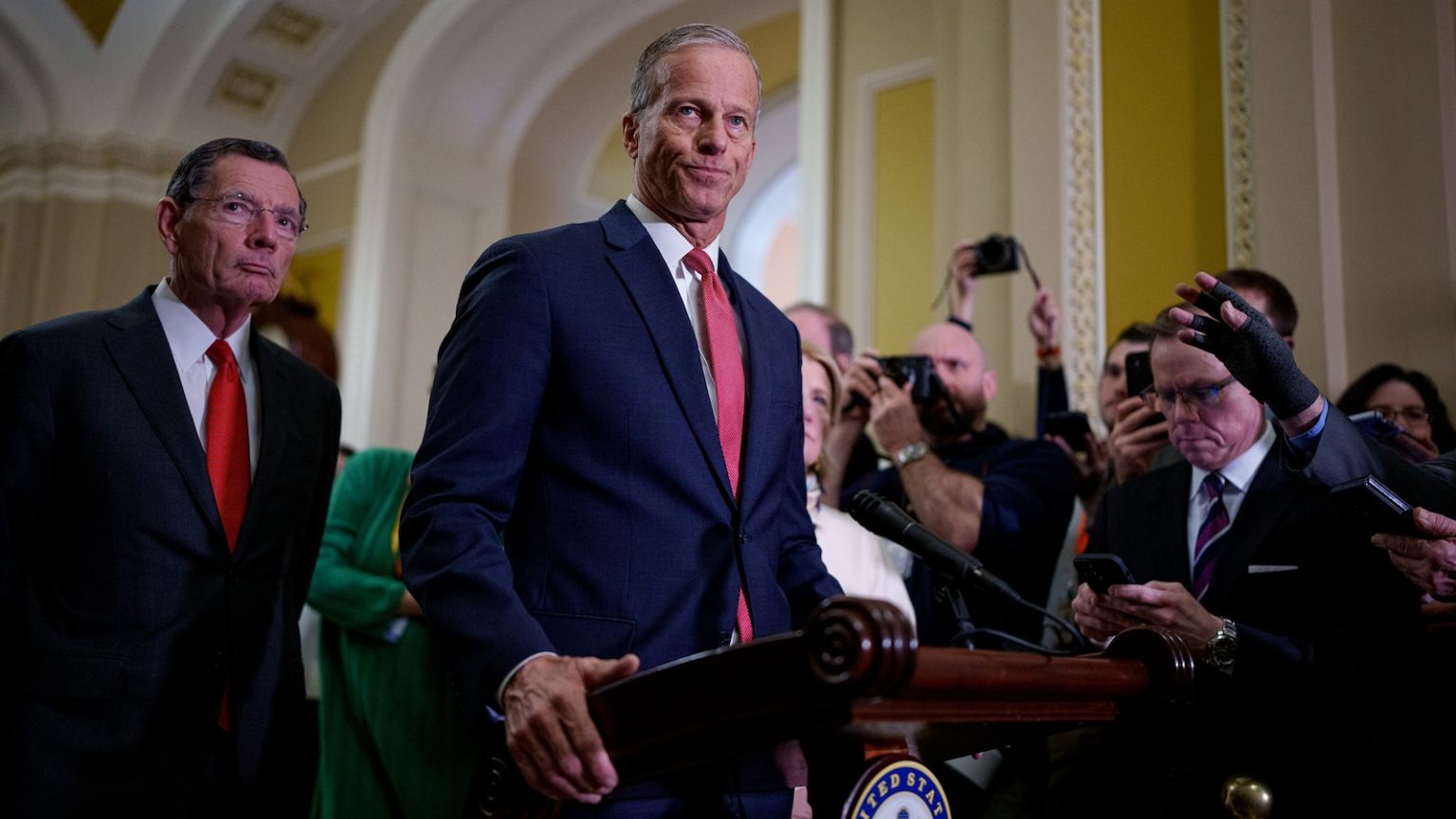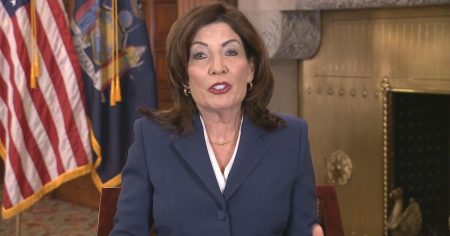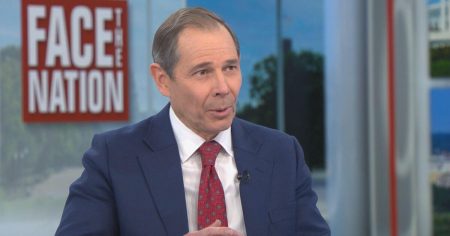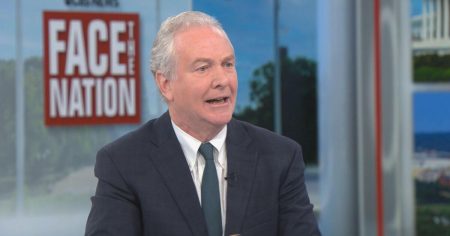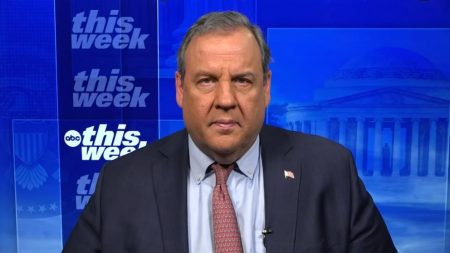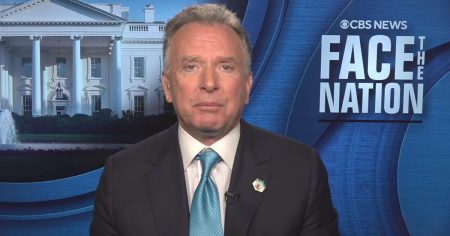Senate Republicans Press Ahead with Budget Plan Despite Trump’s Endorsement of House Bill
The U.S. Senate Republicans are moving forward with their own budget package, even as former President Donald Trump has publicly backed a more comprehensive budget bill proposed by the House of Representatives. The tension between the two chambers reflects broader strategic differences within the Republican Party, as lawmakers aim to deliver on Trump’s "America First" agenda while navigating the complexities of legislative politics.
At the heart of the disagreement is the approach to funding Trump’s key priorities, particularly border security and the extension of tax cuts from his first term. The House bill, championed by Speaker Mike Johnson, includes funding for border security, an extension of the 2017 Trump tax cuts, and a hike to the federal debt limit—a provision that has historically been contentious among Republican members. Trump, in a post on Truth Social, enthusiastically endorsed the House plan, declaring it the "BIG BEAUTIFUL BILL" that fully implements his agenda.
However, Senate Republicans are expressing skepticism about the House bill’s viability, arguing that their own two-part budget package is more practical and actionable in the short term. Senate Majority Leader John Thune emphasized that while Senate Republicans support Trump’s agenda, they need to act quickly to address immediate needs, such as funding for border security and immigration enforcement, without getting bogged down in more complex debates over tax policy.
House Speaker Mike Johnson Backs Comprehensive Budget Bill
House Speaker Mike Johnson has been a strong advocate for the House bill, framing it as the best way to align with Trump’s vision and unite the deeply divided Republican conference. Johnson believes the bill’s robust provisions, including border security funding and tax cuts, will rally his members, even though many of them typically oppose debt limit increases. Given Johnson’s razor-thin majority, almost no GOP defections can be afforded if the bill is to pass.
Despite Trump’s endorsement of the House bill, Senate Republicans are proceeding with their own plan, which prioritizes immediate funding for border security and defense while deferring debates on tax cuts and the debt limit to subsequent legislation. Senate Budget Committee Chairman Lindsey Graham acknowledged the strengths of the House plan but warned that the Senate cannot afford to wait. "I prefer what you’re doing to what we are doing, but we’ve got to get it done soon," Graham said, emphasizing the need for a "Plan B" to ensure timely action on critical priorities like border security.
The divide between the House and Senate reflects broader tensions within the Republican Party, as lawmakers compete for Trump’s approval in the early stages of his second term. Johnson has dismissed the Senate package as a "non-starter" and signaled that the House will not consider it, even if it passes the Senate. Meanwhile, Senate Republicans are pushing forward with their two-part legislative strategy, which they argue better addresses the urgency of Trump’s immigration and national security priorities.
Senate Republicans Advance Two-Part Budget Plan
Senate Republicans are advancing their budget plan, which focuses on delivering immediate funding for border security, defense, and energy policy modifications. Unlike the House bill, the Senate package defers the debate over extending the Trump tax cuts and raising the debt limit to separate legislation later this year. Senators argue that this approach allows them to act quickly on urgent needs while buying time for more complex negotiations over tax policy.
Majority Leader John Thune highlighted the Senate’s commitment to making the 2017 Trump tax cuts permanent but acknowledged that significant work remains to reach a bipartisan agreement. "When the President’s ‘Border Czar’ was here last week, he emphasized that the administration cannot sustain its effort to deport criminals here illegally without additional funding," Thune said. "The last thing we want is to delay other parts of the president’s agenda like border security as we do the work needed to arrive at a tax agreement that can pass both houses of Congress."
Republican Whip John Barrasso added urgency to the debate, noting that Trump’s policies are "working so well" that the administration is running out of funds for deportations. He cited warnings from top administration officials, including "Border Czar" Tom Homan, Homeland Security Secretary Kristi Noem, Defense Secretary Pete Hegseth, and Attorney General Pam Bondi, who have all stressed the need for immediate resources. Barrasso emphasized that Senate Republicans will act quickly to provide the funding requested by the administration.
Democrats Vow to Oppose the Budget Plan
Despite the divisions within the Republican Party, Senate Democrats remain united in their opposition to the budget plan. In a floor speech, Sen. Patty Murray of Washington criticized Trump and his allies, including Elon Musk, for exacerbating the nation’s challenges. "People don’t send us here to make their lives worse, but that’s exactly what Trump and Elon Musk are doing," Murray said. "They are looking at our most pressing problems and making them worse, and this budget proposal will only add fuel to that fire."
Murray’s comments highlight the deep partisan divide over the budget, with Democrats arguing that the Republican plan will harm vulnerable communities and exacerbate inequality. However, with Democrats in the minority, their ability to block the bill is limited to delaying tactics. If Senate Republicans remain united, they can ultimately pass the budget package using reconciliation, a legislative tool that bypasses the 60-vote filibuster threshold.
Vote-a-Rama Kicks Off Budget Debate
As the Senate moves forward with its budget plan, lawmakers are preparing for a grueling "Vote-a-rama," a marathon session of 10-minute amendment votes that could stretch late into the night. This process is the first step in unlocking the reconciliation process, which would allow Republicans to pass tax and budget provisions with a simple majority.
While the Vote-a-rama is a key procedural step, it also underscores the challenges ahead for Senate Republicans. Even if they pass their budget package, significant hurdles remain, including the need to reconcile differences with the House and secure Trump’s ultimate approval. Until House and Senate Republicans can find common ground, the budget debate is likely to remain unresolved, leaving the fate of Trump’s agenda hanging in the balance.
The Path Ahead: Can Republicans Unite?
The budget debate is just the beginning of what promises to be a tumultuous legislative year. For Republicans, the stakes are high: delivering on Trump’s priorities is crucial to maintaining his support and energizing the party base ahead of the 2026 midterm elections. At the same time, the divisions between the House and Senate highlight the challenges of governing with slim majorities and competing visions within the party.
As the Senate proceeds with its two-part budget plan and the House stands firm behind its comprehensive bill, the coming weeks will reveal whether Republicans can find a path forward that satisfies both chambers and secures Trump’s signature. For now, the Vote-a-rama marks the starting line in a race to deliver results for the president and the party, with the outcome far from certain.





